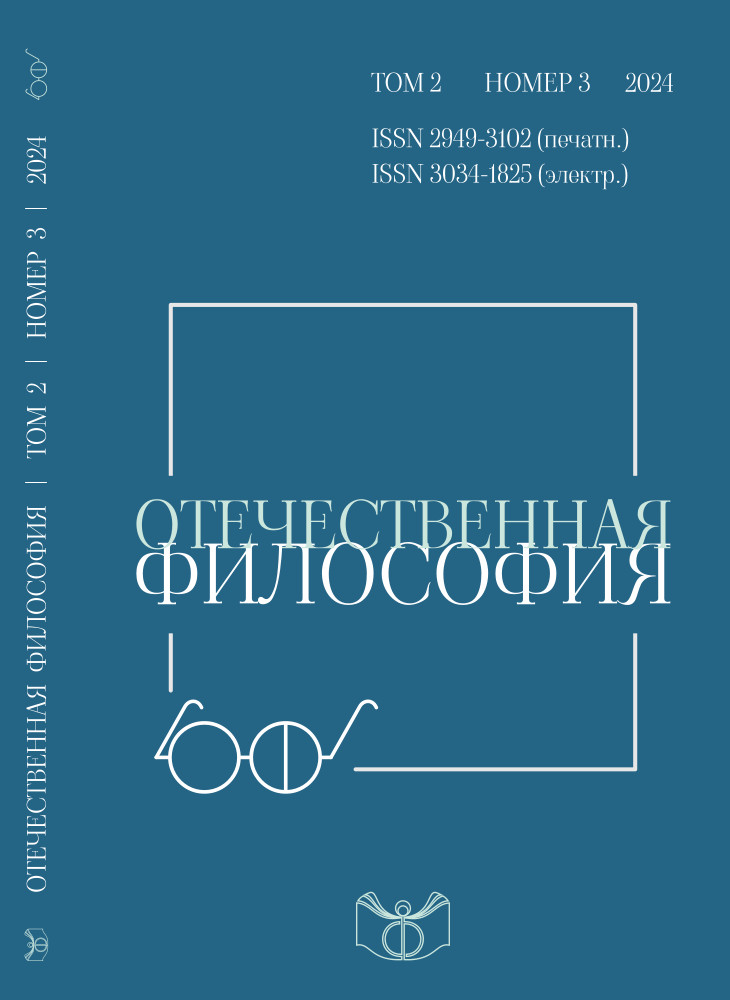On Bad Infinity, or History of Russian Philosophy at the End of the First Quarter of the 21st Century
Keywords:
history of Russian philosophy, Russian philosophical emigration, “the era of the return of names”, canon, depoliticization of philosophy, distortion of historiographical perspective, recontextualizationAbstract
During the second half of the 1980s and 1990s, there was a pronounced surge of interest – both among the general public and the professional community – in the history of Russian philosophy. However, by the beginning of the 21st century, this interest remained in fact only among those who connected their professional trajectory with this subject area. At the same time, as a rule, it was about historical and philosophical research: the question of the Russian philosophical heritage as a space of critical and creative reception seemed to have even ceased to be raised – the “era of the return of names” was replaced by disappointment. This was caused by a whole complex of painful and complicated reasons: the dominant strategy of mechanical reproduction, which largely blocked the spread of interpretative innovations; the revealed conceptual and methodological gap between Russian philosophy (both its heritage and the modern professional community at that time) and modern philosophical thought; a false resonance between the cultural and historical situation of emigration, which largely determined its conservative strategies in the field of philosophy and its historiography, and a new, acutely experienced political and cultural era; radical politicization of Russian philosophy, again and again imposing binary logic in assessing the modern prospects of Russian philosophical history. In the 2000s the situation was aggravated by a sort of corporate rift, as well as a number of other circumstances – a decrease in the tension of the re levant historical and philosophical work, a general shortage of ambitious research programs, the pressure of scientometric policy, which “successfully” coincided with the illusory accessibility of the Russian philosophical heritage. Ultimately, at the end of the first quarter of the 21st century the history of Russian philosophy as a scientific and scientific-educational discipline exists in three overlapping modes – jubilee-memorial, political-ideological and speculative-inertial, each of which is based on a retrospective vector. Overcoming the crisis in the history of Russian philosophy could be associated with a consistent revision of the models and languages of description created by previous historiography, the rejection of radical politicization of the Russian philosophical heritage, reformatting the disciplinary landscape through the transformation of academical-critical historical and philosophical studies and scientific actualization in a modern philosophical context into basic research strategies.


